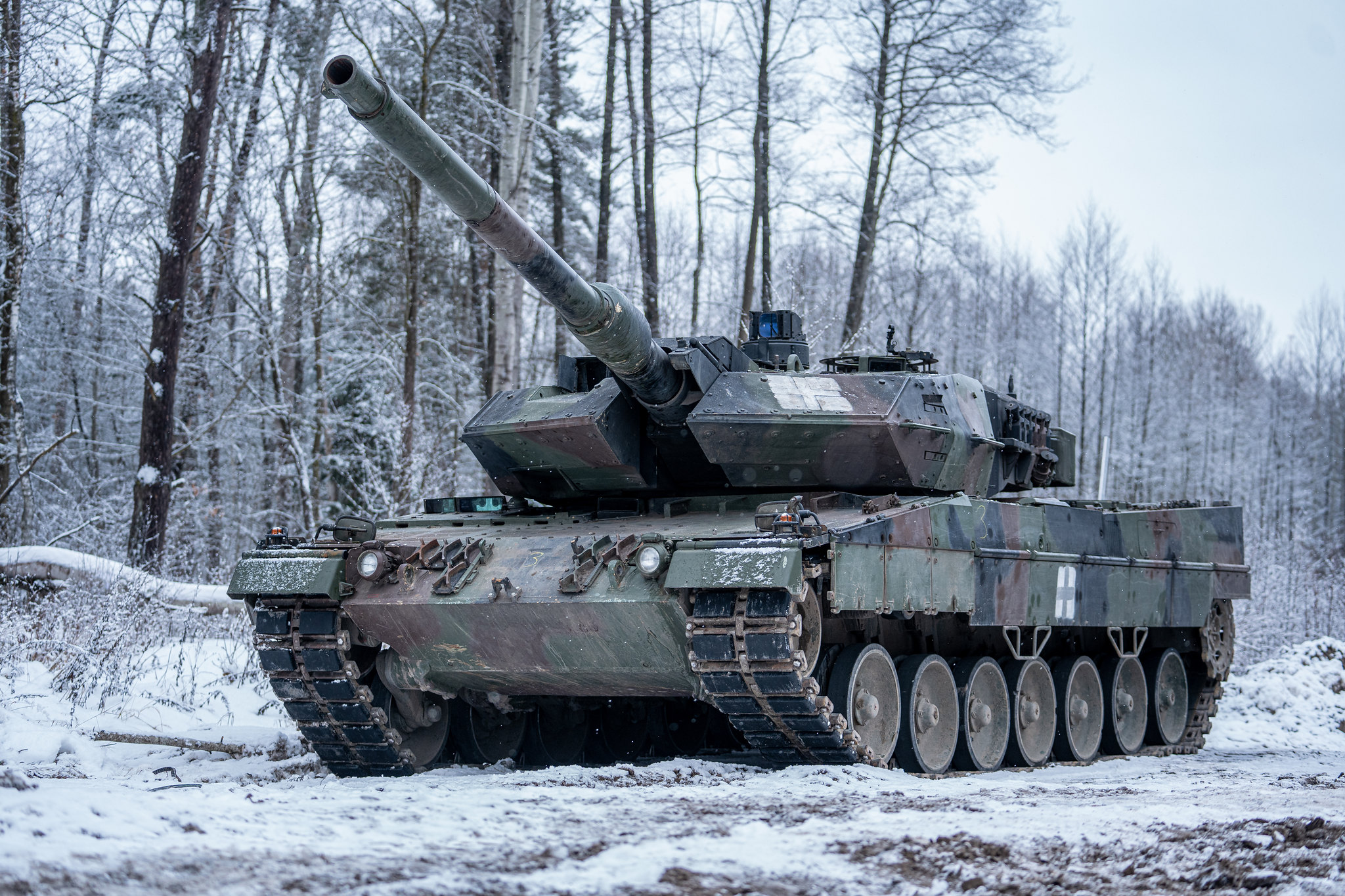In a resounding display of solidarity, Lithuania has successfully restored Leopard 2 tanks damaged on the frontlines and is gearing up to transfer them to Ukraine. The Ministry of Defense proudly announced the completion of repairs, showcasing the tanks at Lithuania's Army training ground in Gaižiūnai. This marks a significant stride in Lithuania's unwavering commitment to bolster Ukraine's defense capabilities.
The repaired Leopard 2 tanks, a potent addition to Ukraine's military prowess, are set to arrive next month, reinforcing Lithuania's proactive role in supporting Ukraine's struggle against Russia. Lithuanian Defense Minister Arvydas Anušauskas, seated atop one of the tanks, expressed his admiration, stating, "What can I say?... A powerful tank."
These repaired tanks are part of a joint venture called Little Defense Services (LDS), established by major European military equipment manufacturers Rheinmetall and Krauss-Maffei Wegmann (KMW). LDS commenced its tank repair operations in October and is expected to continue until the end of next year, underlining Lithuania's commitment to aiding Ukraine's defense efforts.
Lithuania, standing as the sole European nation tasked with the repair of Leopard 2 A6 and A5 tanks, has shown readiness to accept as many tanks as required. Sebastian Dietz, CEO of Lithuania Defense Services, emphasized the diverse combat-related damages addressed during the repairs, including direct hits, mines, drone attacks, and water-related challenges.
This effort follows Lithuania's proactive steps to facilitate the repair and return of the PzH 2000 Self-Propelled Howitzer to Ukraine, another crucial military asset actively involved in combat operations. The country has also contributed financially to the Ukraine Solidarity Fund, aiming to support Ukraine's reconstruction efforts.
As of June 2023, Lithuania has already provided close to one billion euros in military, financial, humanitarian, and reconstruction support, making it the leading global contributor in terms of the percentage of its GDP. This comprehensive assistance includes the transfer of Mi-8 helicopters, L-70 anti-aircraft guns, M113 armored personnel carriers, millions of rounds of ammunition, and grenade launcher ammunition to Ukraine.
Emphasizing ongoing preparations for the impending winter season, Lithuania plans to supply generators and essential equipment to help Ukraine endure the challenging months ahead. The country's multifaceted contribution goes beyond material support, extending to expert advice, international fund contributions, training programs, and participation in NATO-led operations.
In essence, Lithuania's commitment to Ukraine exemplifies a holistic approach, showcasing a dedicated alliance in the face of geopolitical challenges.
